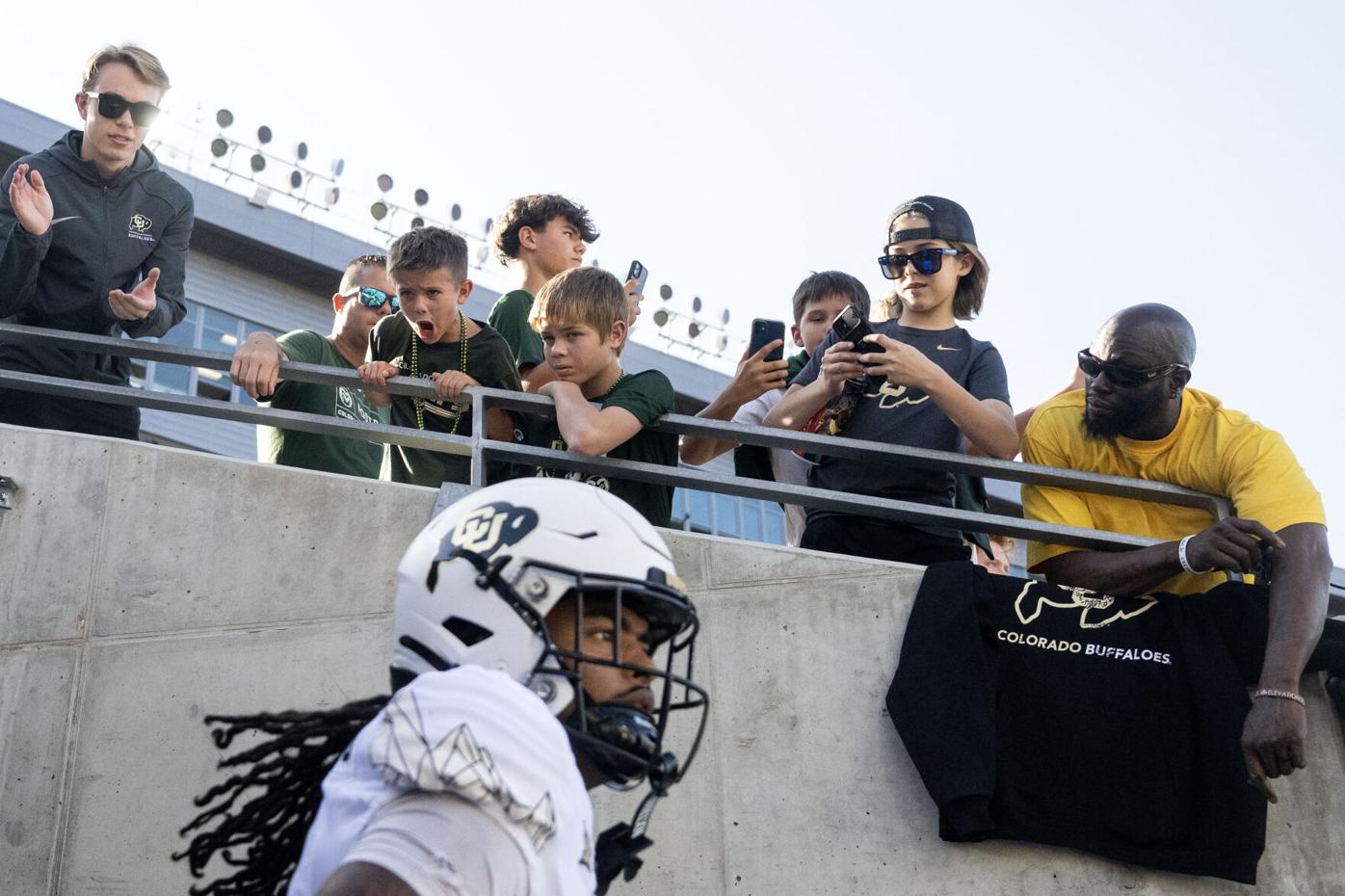Colorado lawmakers to weigh in on transparency and privacy in student-athlete contracts
On Thursday, the House Education Committee will take another look at a bill intended to hide from the public information on the money paid by public colleges and universities to their student-athletes for use of the athlete’s name, image and likeness (NIL).
It’s a growing issue within college athletics, with student-athletes who perform well on the field or the court on the verge of earning millions of dollars, both from colleges and universities and the NCAA.
House Bill 1041 intends to bring Colorado law into compliance with the rapidly changing environment around NIL. It addresses settlements that require institutions and the NCAA to share athletics revenue with the student-athletes who participate in those sports.
Under HB 1041, an institution of higher education or athletic association can compensate a student-athlete for using their name, image, or likeness in branding or marketing for the institution.
It’s also about competition: CU Athletic Director Rick George told the House Education Committee last week that part of the issue with keeping student-athlete NIL information private is around competitiveness for those student-athletes.
The bill had a somewhat contentious hearing last week, and action was postponed in part because of concerns raised by pro-government transparency and media groups about the legislation’s lack of transparency.
As drafted, the bill would exempt any information about a student-athlete who signs an NIL contract with a Colorado public college or university from Colorado’s open records law.
Last week, attorney Eric Maxfield, representing the Colorado Freedom of Information Coalition, discussed a 2023 Temple University Law Review article that said, “Concealing NIL records from the public disserves the interests of every stakeholder—the public, the athletes, and college sports itself—in making sure that competition is fair, honest, and passes the test of legitimacy and that athletes have equitable earning opportunities befitting their level of accomplishment.”
Two amendments have already been drafted for Thursday’s hearing, with one raising some eyebrows.
The amendment would keep private any personally identifiable information of a student-athlete in an NIL contract: name, address, email, phone, birth date, financial information, credit card, or Social Security number.
Hence, that would result in the public getting to see or scrutinize only a “blank contract,” according to Jeff Roberts of the Colorado Freedom of Information Coalition.
It didn’t move his organization off its opposition to the bill.
Senate President James Coleman, D-Denver, is the bill’s sponsor. He takes a somewhat different view of the bill’s privacy language.
Coleman noted how information is made available on public contracts for minority-owned businesses; the businesses aren’t always identified, but other information, such as the contract amount and scope of work, is public.
He told Colorado Politics he’s interested in protecting the privacy of the student-athlete for personal information such as the name. Still, other information, such as the athlete’s team, athlete’s position and contract amount, ought to be public. Coleman raised concerns about how universities fund equity in athletics, indicating that keeping all NIL contract information private might shield some of that scrutiny.
Thilo Kunkel of Temple University, which has studied the NIL issue, said last year that NIL critics argue “most NIL deals go to revenue-generating sports, like football or basketball, and heavily favor male athletes at top institutions, creating more inequality and challenging competitive balance. There are also arguments that NIL sponsorships and donations to NIL collectives cannibalize athletic programs, meaning these programs have less income to distribute across all student-athletes.”
Collectives are often independent fundraising entities associated with specific colleges or universities; they include boosters and fans who fundraise for NIL athletes.
The NCAA reports that out of 362 Division 1 schools, 213 have collectives. CU, which is pushing HB 1041, partnered last year with the 5430 Alliance Collective.
The NCAA requires student-athletes to disclose NIL deals signed with service providers (agents or financial advisors, for example) valued at more than $600. That includes the amount, terms and contact information for all parties involved. Those details must be disclosed within 30 days of signing a contract. The NCAA also says more than 20 states require student-athletes to disclose NIL agreements. The Division 1 Council called its rule on NIL contracts a “consistent national requirement.”
The NCAA also noted that colleges and universities often facilitate NIL agreements between service providers and their student-athletes.
The NCAA has not changed those rules since the House settlement.
House v. NCAA is a settlement reached last October in which $2.78 billion must be paid to thousands of college athletes who played between 2016 and 2021. That applies only to the Power Four conferences: Big Ten, Big 12, Atlantic Coast Conference and Southeastern Conference. The NCAA will pay $1.2 billion, and colleges and universities are responsible for the rest.
Colleges and universities would also be able to share 22% of their athletics revenue with student-athletes, but not mandated. That’s estimated at $20 million per school annually.
The settlement is scheduled to be finalized in April.
HB 1041 will be heard in the House Education Committee on Thursday at 1:30 p.m.
The settlement is scheduled to be finalized in April.
HB 1041 will be heard in the House Education Committee on Thursday at 1:30 p.m.





